The aim of this conference is to allow participants an opportunity to discuss the recent developments in the field of Computer Science and challenges faced by the community in the 21st century. The conference consists of invited oral presentations. To ensure an intense interaction amongst the researchers present at the conference, only a single session will be in progress at any given time. Participants and Presenters are encouraged through a reduced registration fee and the possibility of limited logistical support.
CONFERENCE HIGHLIGHTS

|
Publication: Selected research articles will be published in the Springer Lecture Notes in Electrical Engineering (LNEE) conference proceedings series (https://www.springer.com/series/7818).
For detailed instructions for author and editors of conference proceedings, kindly visit the following link: |

|
The theme of the conference is "Sustainable Advanced Computing for Current Society" - for which cloud computing, IoT, Big data, Machine Learning (ML) and Robotics are an important enabler for the latest change in the current society and market.
The ICSAC 2021 aims to bring researchers and practitioners from various academic institutions and industries. Call for paper topics of interest include but are not limited to the following:
AI AND ROBOTICS: Vision and non-contact sensory systems, Embedded Systems, Bio Inspiration and Robotics: Walking And Climbing Robots, Robotic Automation and Outsourcing, Drones and drone applications, New Approaches in Automation and Robotics, Electrical and Electronics in AI & Robotics, Robotic Surgery, Nanorobotics in Medicine, Robotics Intelligence, Intelligent Control Systems and Optimization, Sensors.
BLOCKCHAIN TECHNOLOGY: Blockchain in AI, Machine Learning, cyber security, Identity and Access Management (IAM), Blockchain tools, simulators, and test-nets, Blockchain-based IoT, fog, cloud, and mobile devices, Blockchain in cyber-physical systems (CPS), Building private blockchain systems.
CLOUD COMPUTING AND VISUALIZATION: Software As A Service (SaaS), Cloud Security and Privacy, Cloud Storage, Cloud Application Development, Industry-Specific Clouds, Cloud Performance Management, Business Models in Cloud, 5G Cloud, Serverless, Infrastructure As A Service (IaaS), Platform As A Service (PaaS).
CYBER SECURITY: Cryptographic Algorithms, Risk and Reputation Management, Intrusion Detection and Response, Mobile Security, Cyber security Legal and Regulatory Issues, Malware Detection, Information Hiding and Anonymity, Data Mining and Knowledge Discovery, Blockchain Technologies and Applications, Privacy-Enhancing Models and Technologies, AI/ Machine Learning for Security, Data and Software Security, Database Security Privacy, Security and Trust in Social Media, Identity and Trust Management, Content Protection and Digital Rights Management, Authentication, Privacy and Security Models, Privacy Metrics and Control, Security and Privacy in Cloud and Pervasive Computing Security Architecture and Design Analysis, Security Awareness and Education, Security Frameworks, Architectures and Protocols Security in IoT and Edge Computing, Security Testing, Software Security Assurance, Threat Awareness, Trusted Computing, Virtualization Security, Vulnerability Analysis and Countermeasures.
DATA SCIENCE: Agile Software Development and Testing, Software Testing, Big Data and Data Science, Algorithms and Computational Mathematics, MDA - Model Driven Architecture, MDE - Model Driven Engineering, Decision Support Systems using Computer Intelligence, Deep Learning and Neural Networks.
E-COMMERCE: Machine Learning, Big Data, and Social Network Analysis, Sharing Economy, Social Commerce, and Social Media, Crowdsourcing and Crowdfunding Financial Technology and Markets, e-Learning and Content, Impacts of FinTech on e-Commerce, e-CRM: Consumer Intention and Adoption, Marketing and Pricing, e-Logistics and e-Transportation, Privacy and Security, AI Approaches: Neural Networks, Chatbot, and CBR, Blockchain and Cryptocurrency, Globalization and Cross-Border Issues, Business Models: Innovation and Entrepreneurship.
HIGH-PERFORMANCE COMPUTING ARCHITECTURES: System-on-chip and network-on-chip architectures, Multicore processor architecture, Application modeling and mapping schemes for multicore/SoC systems, Multicore computing and programming techniques, Power-efficient architectures and techniques for multicore/SoC systems, High performance software systems and its applications, such as agent systems.
IMAGE AND VIDEO PROCESSING: Action recognition, Aerial images, Anomaly detection, Automatic segmentation, Background subtraction, Cognitive information processing, Feature extraction and classification, Image and Video Compression, Object tracking, Satellite images, Scene recognition, Visual content analysis.
PANDEMIC PREPAREDNESS AND DIGITAL TECHNOLOGY: Contact tracing: Data dashboards; migration maps; machine learning; real-time data from smartphones and wearable technology Screening for infection: Artificial intelligence; digital thermometers; mobile phone applications; thermal cameras; web-based toolkits Contact tracing: Global positioning systems; mobile phone applications; real-time monitoring of mobile devices; wearable technology Quarantine and self-isolation: Artificial intelligence; cameras and digital recorders; global positioning systems; mobile phone applications; quick response codes Clinical management: Artificial intelligence for diagnostics; machine learning; virtual care or telemedicine platforms Countries experiences and innovations.
PATTERN RECOGNITION AND CLASSIFICATION: Probabilistic Texture Synthesis, Benchmarking, 3D Data Modelling, Spatial Data Modelling, Probabilistic Expert Systems, Statistical Pattern Recognition, Probabilistic Neural Networks, Content Based Image Retrieval (CBIR), Dynamic Textures, Multidimensional Texture Modelling Multispectral Textures, Texture Segmentation, Illumination and Rotation Invariance, Medical Image Recognition, Classification Mathematical Image Modelling.
NATURAL LANGUAGE PROCESSING: Dialogue and Interactive Systems, Computational Social Science and Social Media, Semantics: Lexical, Sentence level, Textual Inference and Other areas, Information Retrieval and Text Mining, Interpretability and Analysis of Models for NLP, NLP Applications Phonology, Morphology and Word Segmentation, Language Grounding to Vision, Robotics and Beyond, Machine Translation and Multilinguality, Information Extraction Linguistic Theories, Cognitive Modeling and Psycholinguistics.
SOFTWARE ENGINEERING: Agile software development, Cloud and service-oriented computing, Cooperative, distributed, and collaborative software engineering, End-user software engineering, Human factors and social aspects of software engineering, Mining software engineering repositories, Model-driven engineering, Program comprehension and visualization, Requirements engineering, Software architecture, Software evolution and maintenance Software testing, Software quality, Tools and environments.
THE INTERNET OF THINGS (IOT): Smart Grid Systems, Smart Cities, IoT Architectures, Human-object Interations, Interoperability of IoTs, Cyberphysical Systems.
WIRELESS COMMUNICATIONS : Broadcast Channels and Information Theory, Cooperative Networking, Emerging Wireless Standards, Heterogeneous networks (HetNets), MIMO, LTE OFDM Modulation, Personal Area Networks, OFDMA, 4G Cellular, 5G Cellular, SDMA, Smart Antennas, Software Defined Radios, The future of WiFi Traffic Analysis for 4G, Wireless Network Control, Zigbee and other Personal area networks.
1. Manuscripts must be submitted online via Editorial Manager (EM) – EASYCHAIR , a fully web-based submission, peer-review, and tracking system.
2. All manuscripts should be written in English with a brief abstract. They will be reviewed by at least three independent experts [Blind peer review process]. [Maximum total number of pages: 8 pages]
3. All pages should be numbered consecutively. Tables and figures may be embedded within the text or on separate pages with proper caption(s).
4. The first page of the manuscript should contain the title of the paper, the name(s) and complete institutional affiliation(s) of the author(s). An abbreviated title (for running heads) should also be given.
5. Immediately following the abstract, a list of 4 to 6 keywords are to be supplied. These terms should be relatively independent (coordinate index terms), and as a group should optimally characterize the paper.
6. Footnotes, other than those referring to acknowledgements and information on grants, should be numbered alphabetically and placed at the end of a manuscript page (not to be listed separately).
7. Number all references alphabetically according to the following samples:
King-Sun Fu, Syntactic Methods in Pattern Recognition (Academic Press, Waltham, 1984)
D. N. Perkins, Why the human perceiver is a bad machine, Human and Machine Vision, eds. J. Beck et al. (Academic Press, New York, 1983), pp. 341—364.
W. Richards and D. D. Hoffman, Codon constraints on closed 2D shapes, Comput. Vis. Graph. Imag. Process. 31 (1985) 265—281
A. Rosenfeld, Some pyramid techniques for image segmentation, Technical Report 1664, Centre for Automation Research, University of Maryland, May 1986.
Any manuscript which does not conform to the above instructions may be returned to authors for revision before publication.
PAPER TEMPLATES :
Paper Template - DOCUMENT FORMAT (.DOC)
Paper Template - LATEX FORMAT (.ZIP)
We are committed to prompt evaluation and Presentation / Publication of fully accepted papers in International Conference on Sustainable Advanced Computing (ICSAC 2021). To maintain a high-quality publication, all submissions undergo a rigorous review process.
Characteristics of the blind peer review process are as follows:
The ethical policy of International Conference on Sustainable Advanced Computing
(ICSAC 2021) follows the European Code of Conduct for Research Integrity
(http://www.allea.org/wp-content/uploads/2017/05/ALLEA-European-Code-of-Conduct-for-Research-Integrity-2017.pdf).
Authors must be honest in presenting their results and conclusions of their research. Research misconduct is harmful for knowledge. It could mislead other researchers.
(a) Research results
Fabrication, falsification or selective reporting of data with the intent to mislead or deceive is unethical, as is the theft of data or research results from others. The results of research should be recorded and maintained to allow for analysis and review. Following publication, the data should be retained for a reasonable period and made available upon request. Exceptions may be appropriate in certain circumstances in order to preserve privacy, to assure patent protection, or for similar reasons.
(b) Authorship
All those who have made a significant contribution should be given chance to be cited as authors. Other individuals who have contributed to the work should be acknowledged. Articles should include a full list of the current institutional affiliations of all authors, both academic and corporate.
(c) Plagiarism
Reproducing text from other papers without properly crediting the source (plagiarism) or producing many papers with almost the same content by the same authors (self-plagiarism) is not acceptable. Submitting the same results to more than one journal concurrently is unethical. Exceptions are the review articles. Authors may not present results obtained by others as if they were their own. Authors should acknowledge the work of others used in their research and cite publications that have influenced the direction and course of their study.
(d) Duplicate submission
Simultaneous submissions of the same Research Article / Manuscript to different Conference(s) / journal(s) will not be tolerated. The submitted article will be removed without consideration – if found that the submitted article found duplicate anywhere else.
(e) Human and Animal Rights
If the work involves the use of human subjects or human medical data, then author should ensure that the work described has been carried out in accordance with The Code of Ethics of the World Medical Association (Declaration of Helsinki) for experiments involving humans;
Clinical Trial Results, Reporting Clinical Trials, Registration of Clinical Trials – must follow The Code of Ethics of the World Medical Association.
| |
|
| Date for Acceptance Notification | 27 Feb 2021 |
| Last Date for Camera Ready Paper | 27 Feb 2021 |
| Date for Registration | 28 Feb 2021 |
| Conference Date | 05, 06 March 2021 |
| Categories |
Registration fee for Foreign Nationals |
Registration Fee for Indian Nationals |
|
| Paper Presenters | 40 USD | 3000 INR | |
| Attendees | 14 USD | 1000 INR |
* Registration fee includes conference kit
Organizing committee
Organizing secretary
Conveners
Communication / Publicity committee
Executive committee
Financial committee
Keynote and session committee
Online sessions committee
Publication committee
Registration committee
Report committee
Review committee
Sponsorship / Hospitality committee
Website committee
| Dr. Ajay K Sharma | Vice-Chancellor, IKG Punjab Technical University, Punjab, INDIA |
| Dr. Arockiasamy Soosaimanickam |
Dean, Department of Information Systems University of Nizwa, Sultanate of Oman |
| Dr. S Karthikeyan |
Head, Development of Information Technology College of Applied Sciences, Sultanate of Oman |
| Dr. Rajkumar Buyya |
Redmond Barry Distinguished Professor Director, Cloud Computing and Distributed Systems (CLOUDS) Lab School of Computing and Information Systems The University of Melbourne, AUSTRALIA |
| Dr. Inder Vir Malhan |
Professor & Head, Mathematics, Computers & Information Science Central University of Himachal Pradesh, INDIA |
| Dr. Jose Orlando Gomes |
Professor, Department of Industrial Engineering Federal University, BRAZIL |
| Dr. Richmond Adebiaye |
Associate Professor, College of Science and Technology Department of Informatics and Engineering Systems University of South Carolina Upstate, Spartanburg, USA |
| Dr. Ahmad Sobri Bin Hashim |
Senior Lecturer, CIS Department, Faculty of Applied Sciences University Teknologi Petronas, MALAYSIA |
| Dr. John Digby Haynes |
Honorary Professor, Discipline of Business Information Systems The University of Sydney Business School The University of Sydney, AUSTRALIA. |
| Dr. Subhash Chandra Yadav |
Professor & Head, Centre for Computer Science & Technology Central University, Jharkhand, INDIA |
| Dr. Rajeev Srivastava |
Professor & Head, Department of Computer Science and Engineering Indian Institute of Technology, Varanasi, INDIA |
| Dr. Inder Vir Malhan |
Professor & Head, Department of Mathematics, Computers & Information Science Central University, Himachal Pradesh, INDIA |
| Dr. Abhijit Das |
Professor, Department of Computer Science and Engineering Indian Institute of Technology, West Bengal, INDIA |
| Dr. Muralidhara B L |
Professor, Department of Computer Science & Application Jnanabharathi Campus, Bangalore University, Bengaluru, INDIA |
| Dr. K K Shukla |
Professor, Department of Computer Science and Engineering Indian Institute of Technology (BHU), VARANASI, INDIA |
| Dr. Pabitra Mitra |
Professor, Department of Computer Science & Engineering Indian Institute of Technology, Kharagpur, INDIA |
| Dr. Hanumanthappa M | Professor, Department of Computer Science & Application Jnanabharathi Campus, Bangalore University, Bengaluru, India. |
| Dr. Subhrabrata Choudhury | Professor, Department of Computer Science National Institute of Technology, West Bengal, India. |
| Dr. P. Santhi Thilagam | Professor, Department of Computer Science and Engineering National Institute of Technology, Karnataka, India. |
| Dr. Tandra Pal | Professor, Department of Computer Science and Engineering National Institute of Technology,West Bengal, India. |
| Dr. Dilip Kumar Yadav | Professor & Head, Department of Computer Applications National Institute of Technology, Jharkhand, India. |
| Dr. P. Santhi Thilagam | Professor, Department of Computer Science and Engineering National Institute of Technology, Karnataka, India. |
| Dr. Annappa | Professor, Department of Computer Science and Engineering National Institute of Technology, Karnataka, India. |
| Dr. R. Thamaraiselvi |
Associate Professor and Head, Department of Computer Applications Bishop Heber College, Trichy, INDIA. |
| Dr. P. Mukilan |
Associate Professor, Department of Electrical and Computer Engineering College of Engineering and Technology, Bule Hora University, ETHIOPIA |
| Dr. Gnanaprakasam Thangavel |
Associate Professor, Department of Computer Science of Engineering Gayatri Vidya Parishad College of Engineering (Autonomous), Vishakhapatnam, INDIA |
| Dr. Tanmay De | Associate Professor, Department of Computer Science National Institute of Technology, West Bengal, India. |
| Dr. Saravanan Chandran | Associate Professor, Department of Computer Science National Institute of Technology, West Bengal, India. |
| Dr. Rupa G. Mehta | Associate Professor, Department of Computer Science and Engineering Sardar Vallabhbhai National Institute of Technology, Gujarat, India. |
| Dr. Bibhudatta Sahoo | Associate Professor & Head Department of Computer Science and Engineering National Institute of Technology, Rourkela, India. |
| Dr. Baisakhi Chakraborty | Associate Professor, Department of Computer Science and Engineering National Institute of Technology, West Bengal, India. |
| Dr. Rajiv Misra | Associate Professor, Department of Computer Science and Engineering Indian Institute of Technology, Bihar, India. |
| Dr. Somashekhar S Hiremath | Associate Professor, Department of Mechanical Engineering Indian Institute of Technology Madras, India. |
| Dr. S. K. V. Jayakumar | Associate Professor, Department of Ecology, and Environmental Sciences Pondicherry University, Puducherry, India. |
| Dr. S. Ravi | Associate Professor, School of Engineering and Technology Pondicherry University, Puducherry, India. |
| Dr. Diptendu Sinha Roy | Associate Professor, Department of Computer Science and Engineering National Institute of Technology, Meghalaya, India. |
| Dr. Pankaj Kumar Sa | Associate Professor, Department of Computer Science and Engineering National Institute of Technology, Rourkela, India. |
| Dr. Shashirekha H L | Associate Professor, Department of Computer Science Mangalore University, India. |
| Dr. Haobam Mamata Devi | Associate Professor, Manipur University Manipur, India. |
| Dr. A. S. V. Ravi Kanth | Associate Professor and Head, Department of Mathematics National Institute of Technology, Haryana, India. |
| Dr. Neeta Nain | Associate Professor, Department of Computer Science and Engineering Malaviya National Institute of Technology Jaipur, India. |
| Dr. G. Sobers Smiles David | Associate Professor and Head, PG Department of Computer Science Bishop Heber College, India |
| Dr. Manikandan K | Associate Professor, School of Computer Science and Engineering, Vellore Institute of Technology, Vellore, INDIA. |
| Dr. Nilamadhab Mishra |
Senior Assistant professor, School of Computer Science and Engineering Vellore institute of technology, Bhopal. |
| Dr. Mohammad Gouse |
Assistant Professor, Department of Information Technology Catholic University, Erbil, Kurdistan Region, IRAQ |
| Dr. M. Bagyaraj |
Assistant Professor, College of Natural and Computational Sciences Debre Berhan University, ETHIOPIA. |
| Dr. E. George Dharma Prakash Raj |
Assistant Professor, School of Computer Science Engineering and Applications Bharathidasan University, Trichy, INDIA. |
| Dr. A. Manimaran |
Assistant professor, Department of computer applications Madanapalle institute of technology & science, Andhrapradesh, INDIA. |
| Dr. N Rukma Rekha | Assistant Professor, School of Computer and Information Sciences University of Hyderabad, Hyderabad, India. |
| Dr. M.T. Somashekara | Assistant Professor, Department of Computer Science & Application Jnanabharathi Campus, Bangalore University, Bengaluru, India. |
| Dr. Arup Kumar Pal | Assistant Professor, Department of Computer Science & Engineering Indian Institute of Technology (Indian School of Mines), Jharkhand, India. |
| Dr. Virender Ranga | Assistant Professor, Department of Computer Engineering National Institute of Technology, Kurukshetra, India. |
| Dr. Ranjita Das | Assistant Professor, Department of Computer Science and Engineering National Institute of Technology, Mizoram, India. |
| Dr. Pravati Swain | Assistant Professor, Department of Computer Science and Engineering National Institute of Technology, Goa, India. |
| Dr. Anagha Bhattacharya | Assistant Professor, Electrical and Electronics Engineering National Institute of Technology, Mizoram, India. |
| Dr. K. Jairam Naik | Assistant Professor, Department of Computer Science & Engineering National Institute of Technology, Chattisgarh, India. |
| Dr. Venkatanareshbabu Kuppili | Assistant Professor, Computer Science and Engineering, National Institute of Technology, Goa, India. |
| Dr. Ripon Patgiri | Assistant Professor, Department of Computer Science and Engineering National Institute of Technology, Assam, India. |
| Dr. Khundrakpam Johnson Singh | Assistant Professor, Computer Science and Engineering National Institute of Technology, Manipur, India. |
| Dr. Ramesh Kumar | Assistant Professor, Department of Electrical & Electronics Engineering National Institute of Technology, Mizoram, India. |
| Dr. B. Shameedha Begum | Assistant Professor, Department of Computer Science and Engineering National Institute of Technology, Tiruchirappalli, India. |
| Dr. Pradeep Singh | Assistant Professor, Department of Computer Science and Engineering, National Institute of Technology, Chhatisgarh, India. |
| Dr. Chandrasekhar Perumalla | Assistant Professor, School of Electrical Sciences Indian Institute of Technology, Bhubaneswar, India. |
| Dr. Sk Subidh Ali | Assistant Professor, Department of Computer Science and Engineering, Indian Institute of Technology, Chattisgarh, India. |
| Dr. Dharavath Ramesh | Assistant Professor, Department of Computer Science and Engineering Indian Institute of Technology, Dhanbad, India. |
| Dr. Swapan Debbarma | Assistant Professor, Computer Science and Engineering, National Institute of Technology, Tripura, India. |
| Dr. Arka Prokash Mazumdar | Assistant Professor, Department of Computer Science and Engineering, Malaviya National Institute of Technology, Jaipur, India. |
| Dr. Jyoti Grover | Assistant Professor, Department of Computer Science and Engineering, Malaviya National Institute of Technology, Jaipur, India. |
| Dr. Vijay Verma | Assistant Professor, Department of Computer Engineering, National Institute of Technology, Haryana, India. |
| Dr. Pournami P N | Assistant Professor, Computer Science, National Institute of Technology, Kerala, India. |
| Dr. Nonita Sharma | Assistant Professor, Computer Science and Engineering, National Institute of Technology, Punjab, India. |
| Dr K P Sharma | Assistant Professor, Department of Computer Science and Engineering. Dr BR Ambedkar National Institute of Technology, Punjab, India. |
| Dr. B. B. Gupta | Assistant Professor, Department of Computer Science and Engineering, National Institute of Technology, Haryana, India |
| Dr. Kuldeep Kumar | Assistant Professor, Computer Science and Engineering, National Institute of Technology, Jalandhar, India. |
| Dr. Dinesh Kumar Tyagi | Assistant Professor, Department of Computer Science and Engineering, Malaviya National Institute of Technology, Jaipur, India. |
| Dr. Badal Soni | Assistant Professor, Department of Computer Science and Engineering, National Institute of Technology, Assam, India. |
| Dr. Mahendra Pratap Singh | Assistant Professor, Department of Computer Science and Engineering, National Institute of Technology, Karnataka, India. |
| Mr. Pragati Singh | Assistant Professor, Department of Electronics and Communication Engineering, National Institute of Technology, Mizoram, India. |
| Dr. Deepak Gupta | Assistant Professor, Department of Computer Science and Engineering, National Institute of Technology, Arunachal Pradesh, India. |
| Dr. Saroj Kumar Biswas | Assistant Professor, Department of Computer Science and Engineering, National Institute of Technology, Silchar, India. |
| Dr. Partha Pakray | Assistant Professor, Department of Computer Science and Engineering, National Institute of Technology, Silchar, India. |
| Dr. Dipti P. Rana | Assistant Professor, Department of Computer Science and Engineering Sardar Vallabhbhai National Institute of Technology, Gujarat, India. |
| Dr. Bidhan Malakar | Assistant, Professor, Department of Electrical Engineering, JIS College of Engineering, West Bengal, India. |
| Dr. Malaya Dutta Borah | Assistant Professor, Department of Computer Science and Engineering, National Institute of Technology, Silchar, India. |
| Dr. S. Jaya Nirmala | Assistant Professor, Department of Computer Science and Engineering, National Institute of Technology, Tiruchirapalli, India. |
| Dr. Subhasish Banerjee | Assistant Professor, Department of Computer Science and Engineering, National Institute of Technology, Arunachal Pradesh, India. |
| Dr Rajneesh Rani | Assistant Professor, Department of Computer Science and Engineering, National Institute of Technology, Punjab, India. |
| Dr. Vikram Singh | Assistant Professor, Department of Computer Science and Engineering, National Institute of Technology, Haryana, India. |
| Dr. Jamal Hussain | Assistant Professor, Department of Mathematics and Computer Science, Mizoram University, Aizawl, India. |
| Dr. Layak Ali | Assistant Professor, School of Electrical and Computer Engineering, Central University, Karnataka, India. |
| Dr. V Kumar | Assistant Professor, Department of Computer Science, Central University, Kerala, India. |
| Dr. Th Rupachandra Singh | Assistant Professor, Department of Computer Science, Manipur University, Manipur, India. |
| Dr. Prabu Mohandas | Assistant Professor, Department of Computer Science and Engineering, National Institute of Technology, Kerala, India. |
| Dr. Sujata Pal | Assistant Professor, Department of Computer Science and Engineering, Indian Institute of Technology, Punjab, India. |
| Dr. Surjit Singh | Assistant Professor, Department of Computer Science and Engineering Department Thapar Institute of Engineering & Technology, Patiala, India. |
| Dr. Hima Bindu K | Assistant Professor, Department of Computer Science and Engineering National Institute of Technology, Andhra Pradesh, India. |
| Dr. A. S. Mokhade | Assistant Professor, Department of Computer Science and Engineering, Visvesvraya National Institute of Technology, Maharashtra, India. |
| Dr. A. Nagaraju | Assistant Professor. Department of Computer Science, Central University, Ajmer, India. |
| Dr. M. A. Saifullah | Assistant Professor, School of Computer and Information Sciences, University of Hyderabad, Hyderabad, India. |
| Dr. Avatharam Ganivada | Assistant Professor, School of Computer and Information Sciences, University of Hyderabad, Hyderabad, India. |
| Dr. P. Shanthi Bala | Assistant Professor, School of Engineering and Technology, Pondicherry University, Puducherry, India. |
| Dr. A. Martin | Assistant Professor, School of Mathematics and Computer Sciences, Central University, Tamilnadu, India. |
| Dr. A. Saleem Raja |
Faculty, IT Department, University of Technology and Applied science-Shinas Al-Aqr, Shinas, Sultanate of Oman. |
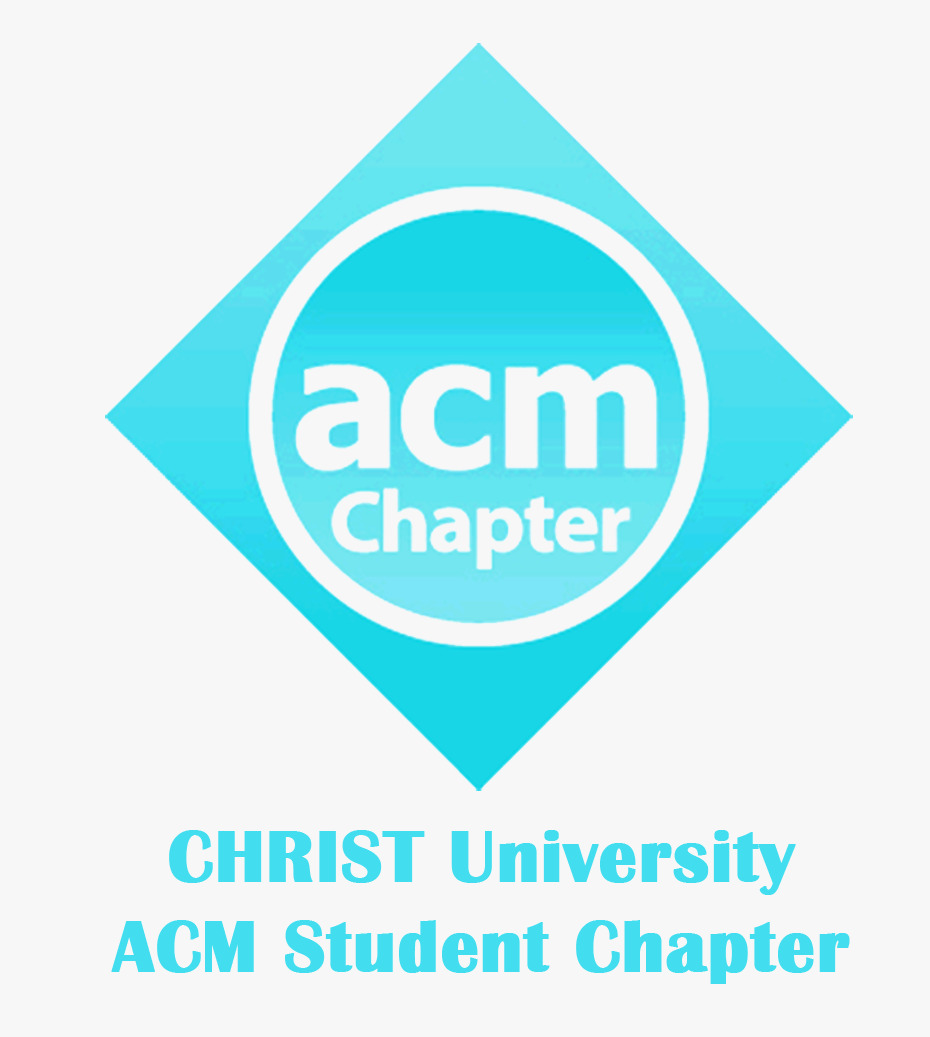
|
|
Christ University was born out of the educational vision of St Kuriakose Elias Chavara, an educationalist and social reformer of the nineteenth century in South India. He founded the first Catholic indigenous congregation, the Carmelites of Mary Immaculate (CMI), in 1831 which administers Christ University.
Established in 1969 as Christ College, it undertook path breaking initiatives in Indian higher education with the introduction of innovative and modern curricula, insistence on academic discipline, imparting of Holistic Education and adoption of global higher education practices with the support of creative and dedicated staff. The University Grants Commission (UGC) of India conferred Autonomy to Christ College in 2004 and identified it as an Institution with Potential for Excellence in 2006. In 2008 under Section 3 of the UGC Act, 1956, the Ministry of Human Resource Development of the Government of India, declared the institution a Deemed to be University, in the name and style of Christ University. One of the first institutions in India to be accredited in 1998 by the NAAC, and subsequently in 2004 and 2016, Christ University has the top grade "A" in the 4-point scale.
The multi-disciplinary University which focuses on teaching research and service, offers Bachelors to Doctoral programmes in humanities, social sciences, science, commerce, management, engineering, education and law to over 18000 students. The campus is a living example for the harmonious multiculturalism with students from all the states of India and from around 60 different countries. Christ University publishes six peer-reviewed research journals and has published more than 300 books in Kannada and English. A promoter of sports, music and literary activities, it is a nurturing ground for creative excellence.
Department of Computer Science of Christ University strives to shape outstanding computer professionals with ethical and human values to reshape nations destiny. The training imparted aims to prepare young minds for the challenging opportunities in the IT industry with a global awareness rooted in the Indian soil, nourished and supported by experts in the field.
The Department of Computer Science endeavours to imbibe the vision of the University "Excellence and Service". The department is committed to this philosophy which pervades every aspect and functioning of the department.
"To develop IT professionals with ethical and human values". To accomplish our mission, the department encourages students to apply their acquired knowledge and skills towards professional achievements in their career. The department also moulds the students to be socially responsible and ethically sound.
Statistics is the body of scientific principles and methodologies that are used to extract useful and comprehensive information from data to draw conclusions about any phenomenon and is a discipline that studies the best ways of dealing with randomness, or more precisely and broadly, variation. The Department of Statistics is the deep interplay between application, computation and theory, as well as the backbone of data science. It renders a good combination of pure and applied statistics with software skills, enabling students to successfully participate in professional life by gaining knowledge.
The department of statistics believes in the philosophy "Excellence and Services"
The Department of Statistics intends to provide dynamic research environment and effective education including excellent training in scientific data collection, data management, methods and procedures of data analysis in different areas of Statistics. For this, we are striving to make our courses challenging, relevant, and innovative to enrich the minds of the students in order to enable them to achieve academic and research excellence.
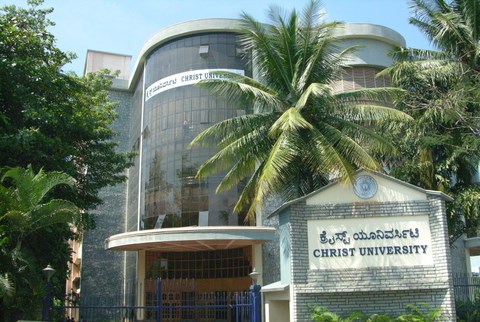
|
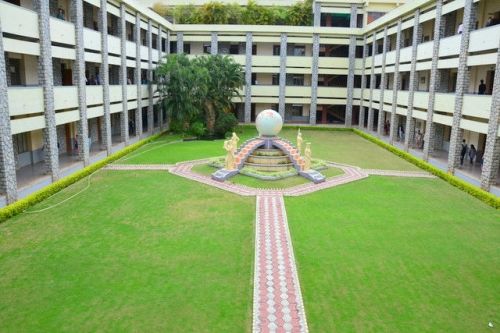
|
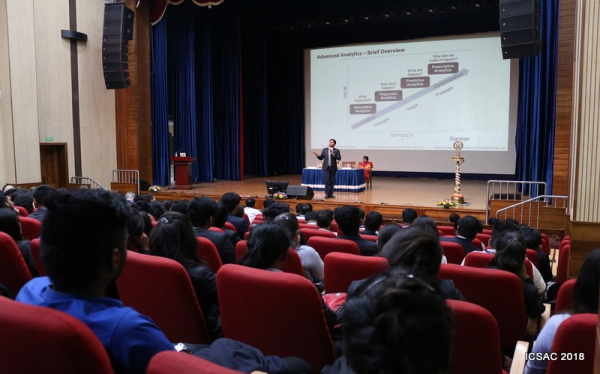
|
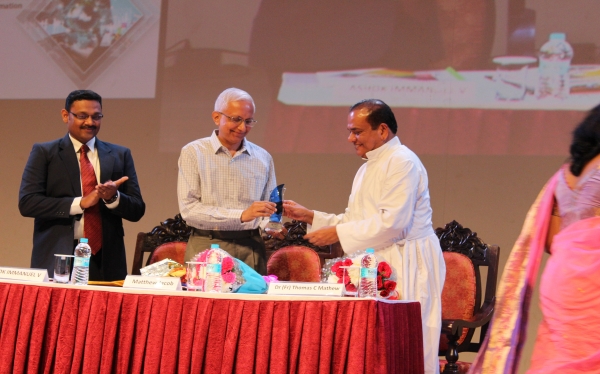
|